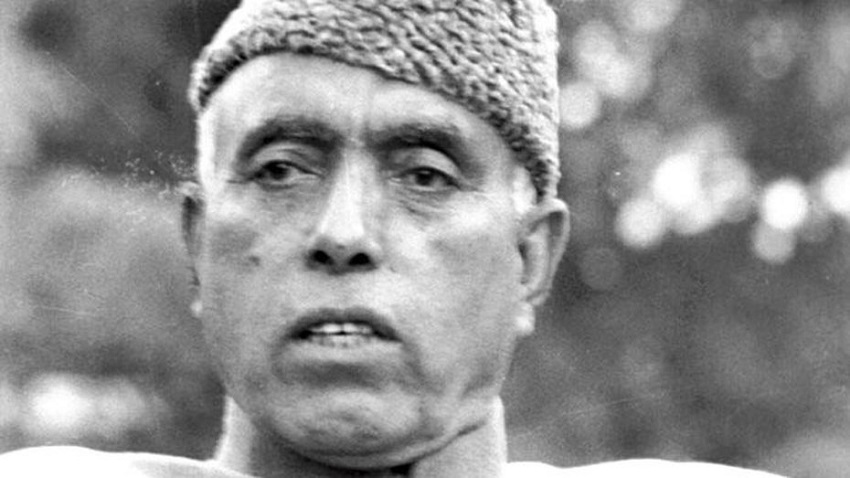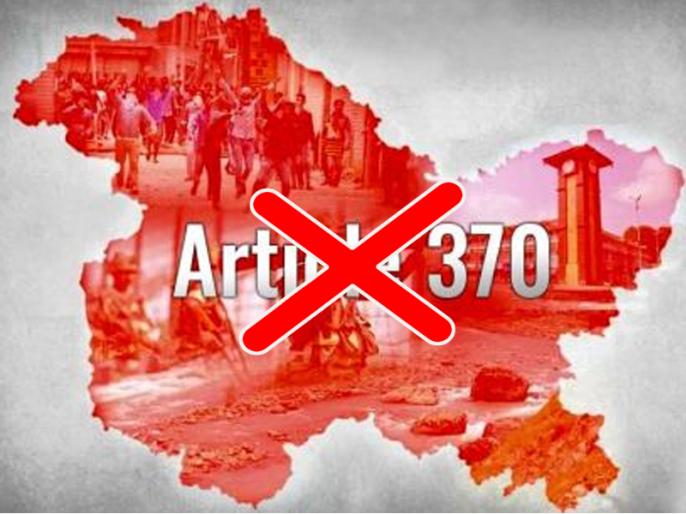
Two years have gone by and gloomy cynics still lament the undoing of a clause in the constitution of India that had deprived the entire population of the erstwhile Jammu and Kashmir state of numerous progressive and emancipating prospects. Not a single public demonstration was staged in any one of the then three regions of the state by way of resentment against scrapping of Article 370. Only the diehard political conservatives lamented its loss just because it meant the loss of their hegemony and monopolisation of power.
In the first place, the debate on the proposition whether the provision of a special status for J&K was desirable or not in the Constitutional Assembly was simply one-sided with a unanimous NO. Sheikh Abdullah along with Mirza Afzal Baig was encamping at 5 Prithvi Raj Road and threatening Jawaharlal Nehru that he would withdraw accession if special status was not conceded for J&K. That shows the fallacy of much touted convergence of ideologies between the Congress and National Conference.
On Nehru’s persuasion Sheikh Abdullah met Ambedkar —the father of the Indian Constitution — who bluntly told him that he was not going to create another Pakistan.
Secondly, inclusion of the Article 370 was a temporary provision, so said the constitution. Simple logic is that it should have been abrogated immediately after the Sheikh was deposed in August 1953, arrested and charged with treason. He had misused the Article. He had lost legal as well as moral basis for special status. The lone person who defied the entire constituent assembly and stood by him was “stabbed in the back” as Nehru once put it. A constitutional provision that had the potential of fomenting treason needed to be scraped particularly when it was a temporary measure. The notable flaw was that the conditionality of it being “temporary” had remained undefined.
What lay at the core of Sheikh Abdullah’s demand for special status? Our national political leadership always felt shy of calling a spade a spade. Sheikh Abdullah argued that India was predominantly Hindu while J&K was predominantly Muslim that needed safeguards against what political scientists call ‘tyranny of majoritarianism’. The logic behind the theory is understandable but then it’s application has to be universal and comprehensive and not selective. Not to speak of similar safeguards to the non-Muslims of the state, Sheikh Abdullah did not even concede minority status to any religious minority community in J&K. The Constitution of the state did not recognise any religious community a minority community whereas the state does not bar its majority community from enjoying the full benefits accruing to them in their status as number one national minority according to the Indian Constitution.

The question is what lay at the root of this anomaly? The fact is that Nehru was very euphoric about the Leftist ideology and Leninism in particular. He was enamoured of Soviet Union’s model for Turkestan or Central Asia. The Soviet system had allowed special status to certain regions like Gorno Badakhshan or Nogorno Karabakh. When the Leftists in National Conference were asked to provide a model for free J &K, they contacted Adhikari who suggested the constitution of Uzbekistan as a model.
The Naya Kashmir Manifesto was only the rehash of the constitution of Uzbekistan. This may be a plausible theory but the fact is that Nehru paid no attention to the riders imposed for grant of autonomous status to the aforementioned regions. For example, despite regional autonomy only one political party viz. CPSU was allowed to function and it functioned in accordance with the decisions of the Central Party. Secondly, the federating units including regional autonomies could ask for secession on certain conditions like (a) enjoy financial and economic viability and non-dependence and (b) the seceding unit does not pose a security threat to the Federation.
The foundation for abrogation of Article 370 was laid by Sheikh Abdullah in 1953. His hobnobbing with the Americans (Adlai Stevenson), the Chinese (Zhou en Lai), Pakistani ISI (Awaan) and Saudis (in post – 1975 period) successively convinced the nationalist forces in the country that all this recalcitrance emanated from the constitutional insularity of J&K ruling apparatus.
Nearer home, the National Conference which like Congress had monopolised political domination allowed its administrative machinery full freedom of running state administration in a partisan manner. Discrimination on regional basis, willful stonewalling of beneficial legislation, pro-majority orientation of bureaucracy, soft-paddling with anti-national elements, entrenched nepotism and corruption and above all demonstration of non-seriousness towards vital national development schemes etc. was the phenomenon that kept the state retarded.
Why were the displaced persons from POK or even West Punjab denied statehood for seven decades in contravention of international law and the clauses of Human Rights Charter and Indian Constitution? Why should a Kashmiri bride lose her statehood rights if she marries a man from outside the jurisdiction of the state? What justification is there for an Indian national not having the right to buy land and property in the state while any Kashmiri can buy property anywhere in India.
The last nail driven by a “popular” government of the state was allowing thousands of Rohingya Muslims of Myanmar to settle down secretly in Jammu close to the international border with Pakistan. Without making anything public these intruders were provided with many civic facilities in shortest possible time. Ration cards, identity cards, Aadhaar cards, driving licences and work permits etc. all facilities were provided. Did the special status evaporate in the thin air? Why were the Rohingyas settled in Jammu region and not in the valley? Was it a step towards changing the demographic complexion of Jammu under the garb of Article 370?
And finally the ambivalent role played by sections of Kashmir political leadership and the elitist class in the wake of eruption of Pakistan-sponsored terrorism has drawn the last nail in the coffin of Article 370. The truth is that the real political, economic and social freedom of J & K was won by the people of the state (now a Union Territory) on Aug 5, 2019 when the Indian Parliament abrogated it through a majority vote.
